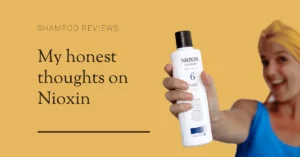
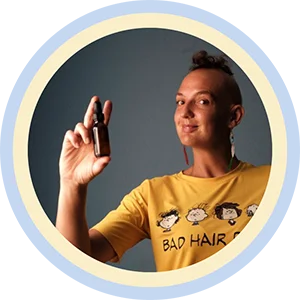
There’s lots to love about Morocco: like its colorful riads, hectic souks and tasty tagines. But one of Morocco’s greatest gifts is argan oil – also known as “liquid gold”. I came across the nutty oil during a trip to Morocco in 2012. (I actually had hair back then… so using argan oil for hair loss never crossed my mind.)
Still, I bought some of the thick oil to apply to my dry, sun-damaged hair and it worked wonders. My partner even combed some into his beard and it detangled that, too!
There’s a reason why so many hair loss shampoos and conditioners list argan oil as their top ingredient. They know that argan oil holds the key to healthy hair for everyone!
In this post, I’ll talk about the benefits of argan oil for hair growth, how it can help thinning hair, and how it’ll moisturize the hair you’ve got to keep it in tip-top condition.

Native to southwest Morocco, the argan tree – Argania Spinosa – is known locally as the “tree blessed by Gods.” And it’s steadily gaining attention from the West too, as a beauty industry favourite.
The hard-shelled kernels of the tree’s fruit can be used to make argan oil. Traditionally, the pure oil was used in cooking, or for dipping bread into. But more recently, the argan tree has extended its liquid gold to cosmetic uses – helping hair grow long ‘n’ strong, smooth ‘n’ shiny.

Good question. Argan oil uses a traditional extraction method. Argan nuts (kernels) are laid out in the sun to dry, although sometimes ovens are used to dry the kernels faster. Once dried, they’re cracked – whether that’s by hand or in a manually operated stone grinder, the process is slow and labor-intensive.
LA Says: This, along with transport costs from Morocco and the fact that the tree isn’t as widely available as say, the coconut tree, may explain argan oil’s higher price tag compared to some other natural hair care remedies.
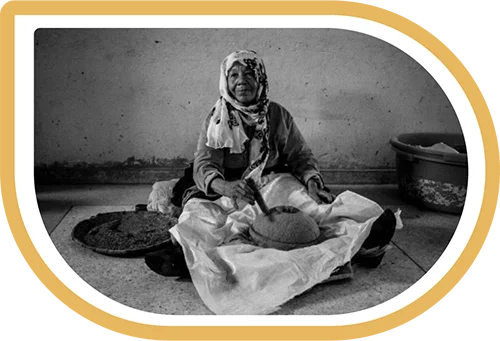
FYI: The argan oil industry includes over 50 women’s cooperatives to protect the people who collect these kernels, including them in the supply chain and making sure they get a fair price for their produce. So when you buy argan oil, you’re helping to support these rural communities in a way that’s socio-economically sound. Yay!
Now you know where it comes from, you might want to know what it can do. Like, can argan oil help hair loss?
I was aware that argan oil is great conditioner, adding softness and shine. But the more I’ve researched its chemical make-up and properties, the more I’ve realized how it also protects the hair, nourishes the follicle and prevents breakage. In short, it can prevent the factors which lead to hair loss.
But wait, there’s more! Studies show that natural oils can form a gentle, long-term treatment plan to strengthen hair shafts and actively repair damaged hair, while cleansing the scalp and hair follicles. Meaning they foster a healthier scalp, which can promote hair growth, too.
In this 2010 study, researchers tested the effects of tocotrienol supplementation on hair growth in 38 volunteers with hair loss. 21 volunteers received 100mg of mixed tocotrienols every day while 17 were given a placebo capsule.
Tocotrienols, FYI, are powerful antioxidants and a member of the Vitamin E family. Argan oil is incredibly rich in Vitamin E, with between 60–90mg of the stuff per 100g.
After 8 months, volunteers in the tocotrienol supplementation group had a growth rate of 34.5%. The other group actually went through a 0.1% decrease. Poor guys.
The researchers concluded that this probably because of the tocotrienols’ antioxidant activity, which reduced the oxidative stress in the scalp that’s commonly associated with alopecia.
Basically…
I like the results of that study. But plenty of other oils contain tocotrienols and Vitamin E, too. So what makes argan so special?
Well, here’s what else argan oil can do to give you healthy hair – that stays on your head!
Argan oil makes a great natural replacement for your conditioner! And regular conditioning strengthens weak, damaged and fragile hair.
Argan oil contains oleic acid and linoleic fatty acid – something that’s proven to improve “combing force”, to reduce split ends and breakage.
A 2015 study in the International Journal of Trichology studied the effects of linoleic acid (which is also in coconut oil and olive oil) on the hair. They found that: “Treatments using oils reduced the formation of split ends in the hair.”
Ok, so argan wasn’t included in the tests. But it does have a higher linoleic acid content than either coconut or olive oil, at 31–35% (the others are 2% and 10%, respectively). So it stands to reason that argan oil is even better at moisturizing the hair and preventing split ends. Yay!
Fun fact: Vitamin E is a fat-soluble antioxidant that stops the chain reaction of free radicals from producing more free radicals.
By protecting the scalp against free radical damage (say, from the sun), your hair is less likely to become dry or damaged from UV rays. Maybe that’s why Moroccan women have such fab hair, despite that scorching desert sun!
The anti-inflammatory, toxin-kicking powerhouse that is argan oil also helps to prevent scalp conditions like dandruff, psoriasis and seborrheic dermatitis that can occur from environmental damage.
Vitamin E also provides a lovely fatty layer to your hair and scalp. A weight that can reduce frizziness and promote a full, shiny mane instead.
FYI: That fatty layer also comes in handy if you have color treated hair or use heat treatments, which can dry out and damage the hair shaft.
Luckily, argan oil’s medium-chain fatty acids offer protection to prevent damage – and if it’s too late for that, it contains nourishing keratin to restore your hair health. Like in this 2013 study, which showed that when argan oil was applied to Caucasian hair, it “decreased the damage caused to hair by the coloring process.”
These essential fatty acids and nutrients work to minimize cuticle damage and boost follicle health. So with all of the moisturizing, anti-inflammatory and nourishing properties of argan oil, your scalp can stay in great condition.
The great thing about argan oil is that it’s able to penetrate the hair’s outermost layer with all of this vitamin goodness – meaning that it can hydrate it from within (while preventing breakage).
With less breakage and fewer split ends, argan oil can therefore help to prevent hair loss – giving you stronger and thicker hair instead. Nice one.
Customer Favorite
Moroccanoil is one of the most popular argan oils on the market – it’s one of the top hair care products on Amazon, in fact. It also has this light version – formulated especially for fine or light-colored hair .
Those with white or grey hair, which you might notice if your alopecia patches are filling in, will probably prefer this light version over other argan oils. You can use the oil on wet or dry hair for added shine and reduced frizz or rub a little into the ends to keep your blowout style for longer. Just a pump or two is all you need for silky, tangle-free locks.
Most Trusted Brand
I mention this brand a lot: because they make some of the best organic hair loss products out there. I haven’t actually used their argan oil – yet – but if it’s as good as their castor oil, I’d be very tempted. From the 14K reviews on Amazon (and counting!) other people love this product, too.
This cold-pressed oil, which comes in an eco-friendly glass bottle, is a 100% USDA-certified organic argan oil. It’s safe to use on your face and body, too – so add it to your favorite day cream and slather on some liquid gold every morning!
For All Hair Types
Even though I’m not sold on the aggressive-sounding name, I do like this brand! The paraben and sulfate-free hair oil works to seal in moisture and shine. It’s suitable for all hair types: from blonde to dark, thick to fine, curly or frizzy to color-treated.
However, this product contains a few other ingredients in addition to argania spinosa. Ingredients that mightn’t agree with everyone. So use at your discretion.
Reader-verified
One of my readers left a comment asking whether I’d tried this brand. I haven’t as of yet, and unfortunately can’t seem to get it in Vietnam, but he raved about their argan oil for hair growth!
And customer reviews on Amazon seem to agree. They use the 100% pure argan oil for their face, body, hair and even nails!
Most of them comment how light it is in comparison to other oils, while still deeply nourishing and softening both skin and hair.
Kind to Scalp
Although this is one of the pricier oils on this list, it does seem to be pretty amazing for hair and scalp health.
It’s said to reduce drying and styling time with a fast-absorbing, alcohol-free formula that nourishes the scalp to prevent dryness or itchiness. The lightweight 100% pure and certified argan oil also repairs and adds elasticity to dry, damaged and frizzy hair – without weighing it down.
Agadir also makes a great treatment spray, which can be even easier to apply and distribute if you have long hair.
Quality can vary a lot between argan oil brands. So make sure to do your research before you buy. Here are some things to bear in mind if you’re shopping for an oil that isn’t in my Top 5!
Argan oil isn’t as cheap as other natural hair growth treatments. So prepare to spend a little more. However, make sure that the price tag on the oil you’ve chosen isn’t just down to its marketing and packaging – check that it’s of a decent quality by reading some reviews first.
If your argan oil is filtered once, it will smell slightly nutty. If it’s been filtered twice or more, it will be odorless. In my opinion, it’s best to go with the nutty version as oil that has no scent may be overly diluted, or else it’s not the real thing.
Conversely, if the oil smells really strong (it should be mild), I’d also question the product. It could be gone off. Gross.
As argan oil gets more popular in the West, there have been concerns about the legitimacy of some products. So your choice might be affected by the product’s list of ingredients – which should be the smaller, the better. Aside from OGX, the oils I’ve reviewed here have only one ingredient: 100% pure argan oil (or argania spinosa).
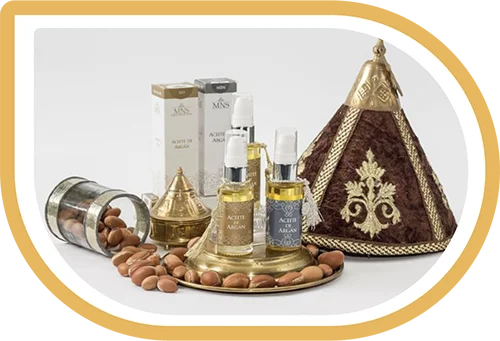
Pure argan oil has a light, golden-yellow color. If it’s too light, the product might be mixed with cheaper oils or has been industrially processed rather than manually extracted.
I’d also recommend choosing an oil that comes in a dark amber glass bottle. Apparently the light that penetrates a clear bottle will break down the oil’s properties. Oh, and glass ones are kinder to the environment, too!
Look for “cold-pressed” – which uses combination of low heat and a grinding movement to create an even, smooth paste. This paste is then stirred to separate the oil and kernel particles, forcing the oil out.
Because of the low heat involved (and the lack of chemicals or exposure to toxins), this method retains the oil’s natural properties and nutritional value. Woohoo!
Or hair loss, or just healthy hair in general. Argan oil can be used in loads of ways. Its natural phenols will still benefit your hair follicles, whatever way you apply it.
Plus, there’s no harmful side effects, so you don’t need to worry about using it in the wrong way. (Well, maybe an overly shiny look and oily feel – but if that happens, just use less oil next time!)
Simply massage a tablespoon of argan oil into your scalp every night. Rub it in for 2-3 minutes to stimulate the scalp and open your pores. Leave it in to absorb all the nutrients and rinse out in the morning.
Alternatively, check out the following ways of adding argan to your hair care routine.
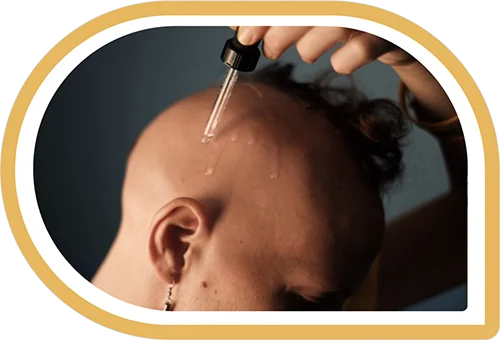
Try these DIY treatments out for size. If they get a bit messy to make, you can always revert to the ready-made argan shampoos and conditioners I mention in the next section.
This one is a cheap and easy way to make your argan oil last for ages!
Simply add 2 drops of “liquid gold” to a handful of your usual shampoo the next time you’re lathering up. Wash and rinse as usual and enjoy this addition to your regular shampoo every second day.
I don’t really use a conditioner in my hair. I don’t have much hair to begin with, so it seems like a waste! But even so, the hair I do have can get brittle quite easily. So I either use coconut oil on the ends to keep it moisturized… or I turn to argan oil!
After shampooing, rinsing and towel-drying your hair, rub 2-3 drops of argan oil into your hair (close to the ends). Dry and style your hair as usual; no need to rinse!
Enjoy this simple treatment to nourish your noggin! You can use the oil all by itself – as directed above – or mix it with another proven hair-friendly carrier oil, like castor oil or coconut oil.
*Psst… For an extra-special carrier oil, mix the following together:
You can also add a couple of drops of your favorite essential oil – like peppermint or rosemary – to further stimulate growth. Have fun experimenting!
That’s right – argan oil can clean, moisturize, treat and even style your hair! There ain’t much this baby can’t do.
To smooth frizzy hair and flyaways, squeeze 1-2 drops into the palm of your hands and rub together. Pat your hands lightly over the surface of clean, dry hair (not on the scalp) for an argan styling gel that’s sleek but non-greasy.
If you’re following up this step by straightening or curling your hair, good news – argan oil also acts as a heat protectant to reduce styling damage. I told you, it does it all!
If you want a very quick ‘n’ simple way of bringing argan oil into your life, check out these top products that include the pure stuff…
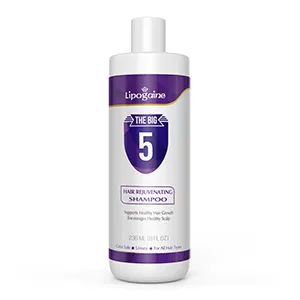
Argan oil isn’t cheap – at least, not as cheap as coconut or castor oil. Because it’s sourced almost entirely from Morocco, production and transport costs mean a higher price for the consumer. FYI: It isn’t worth buying this oil at a knock-off rate. Be prepared to pay a bit more, so you get a pure product.
Yes, it can. And your nose will tell you when it does! Argan oil should have an expiration date printed on its glass bottle – but you can extend its shelf life a little by storing it in a cool, dark place.
You don’t have to, no. You can rub it directly onto your scalp nightly – but I recommend using it with a carrier for an argan hair mask (see above recipes) once or twice a week for maximum nourishment.
None whatsoever. Apart from a nutty smell (and a lighter wallet!) argan is side effect free!
Pure argan oil has plenty of benefits – whether you want to use it for cooking, or as a hair and beauty product. Some people use the oil to whip up their own products; others prefer to buy their shampoos or conditioners with argan oil already added. That’s your call.
I’m not saying that argan oil will miraculously regrow new hair. But if you want the hair you do have looking good, you’d struggle to find a product that will leave it as shiny, moisturized and healthy.
So whether you’ve got thick hair with bald patches or thinning hair overall, argan oil will massively improve its condition.
Give it a try on your locks and as always, comments/feedback are very welcome!
Love & hugs,
Get free, semi-regular alopecia-related news things and musings.
Psst… If no welcome email shows up, check your spam.
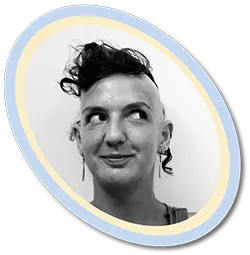
Alopecian. Yoga Teacher. Copywriter. Here to share information, offer support and show people the adventures that can lie in hair loss. I’m proud to have alopecia and I want to help others embrace their baldness, too!

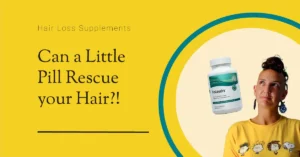
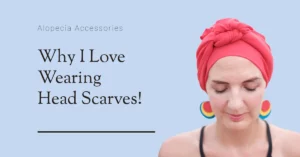
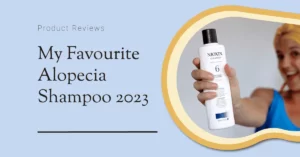
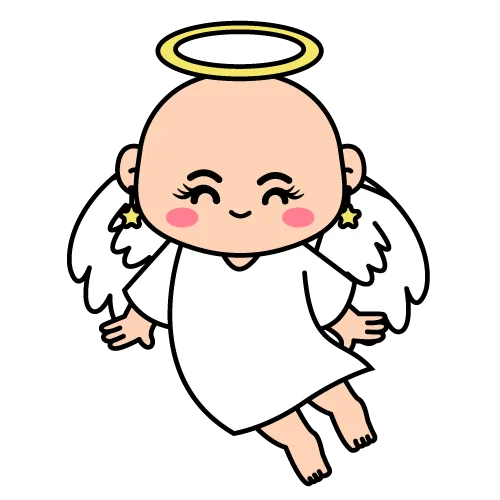
Every month, thousands with hair woes visit my site. The more the merrier! But it takes AGES to write posts and reply to emails. Don’t get me wrong, I love it! But running a website isn’t free. So I’m trying something new: I’m asking for your support. If Lady Alopecia has helped you, please consider buying me a (virtual) coffee or even become a patron of the site. Thanks!
I’m Emma. I’ve had alopecia for 24 years and I’m here to inform/hopefully empower people like me! Read my full story here. But I’m not a doctor, so any advice here is based on my own research and experience. I’m also in a few affiliate programs – see my disclaimer page for more. Or contact me here. Also, why not join a thousand fellow alopecians and get my-semi regular hair about life with irregular hair?
Psst… If no welcome email shows up, check your spam.
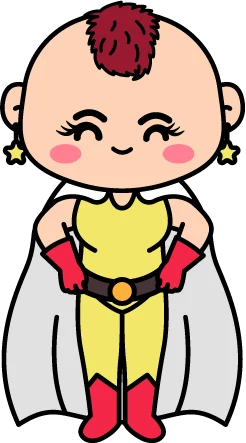
Small print time: Ladyalopecia.com is a participant in the Amazon Services LLC Associates Program, an affiliate program designed to provide a means for sites to earn advertising fees by advertising and linking to Amazon.com.
Copyright © 2023, Lady Alopecia. All rights reserved. Important – By using this website, you promise not to steal stuff. Thank you kindly.
Just stick in your email to join the gang.
If no welcome email appears, please check your spam. Oh, and don’t worry, I won’t give your details to Zuckerberg and you are free to unsubscribe at any time.
Join the gang and receive semi-regular news and joy from someone with very irregular hair.
2 responses
You referred to something called “liquid gold”. Is that by any chance Monat?
Hi Janice! Ah no, I was just referring to the fact that it’s often called ‘liquid gold’ in the cosmetics industry, without being affiliated to a specific product. But maybe Monat has a product called Liquid Gold, is that what you mean?